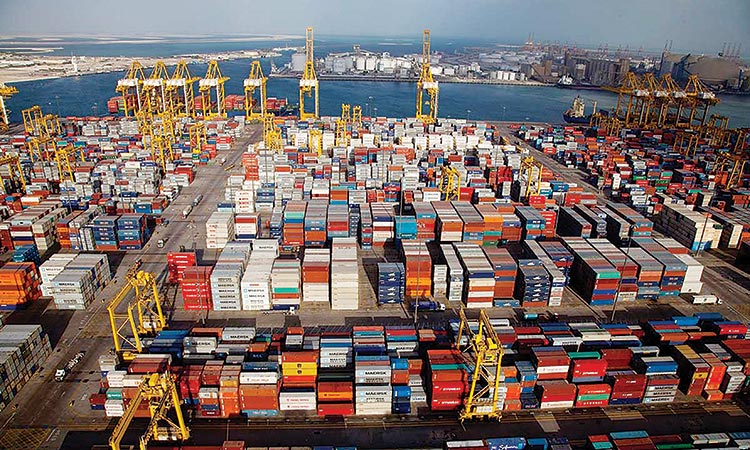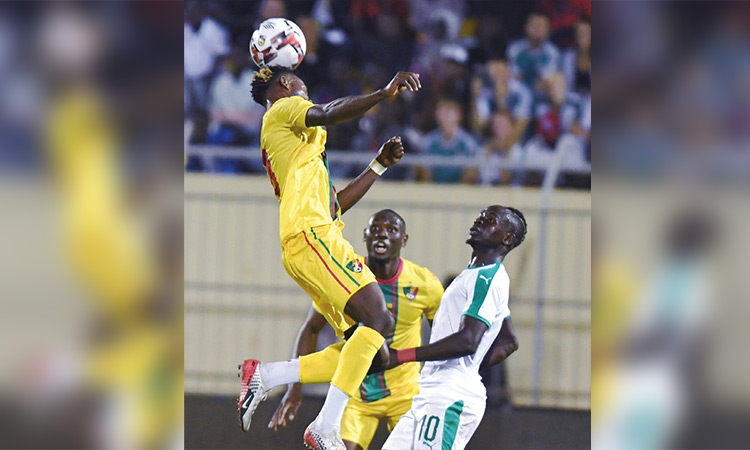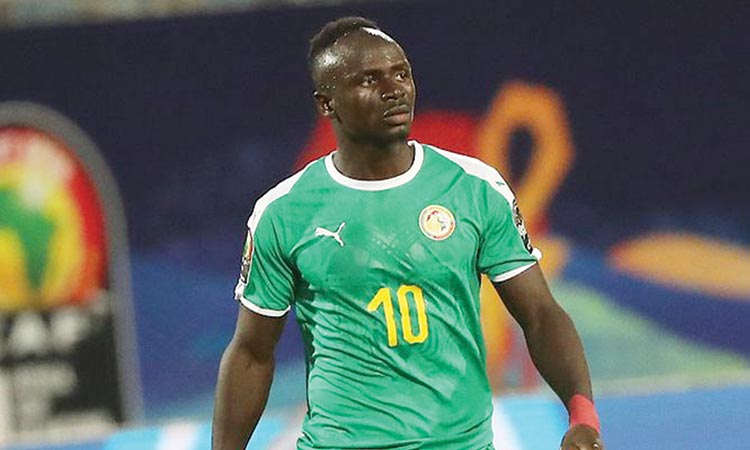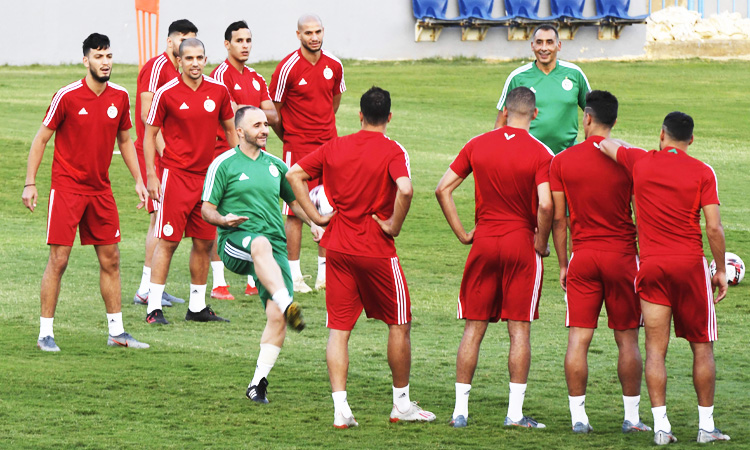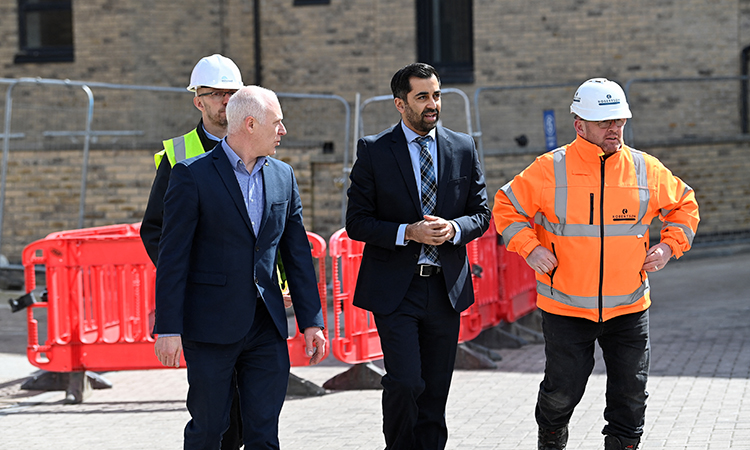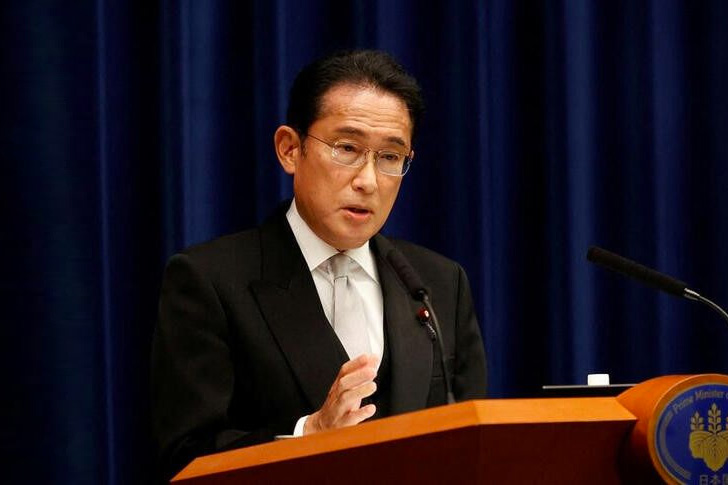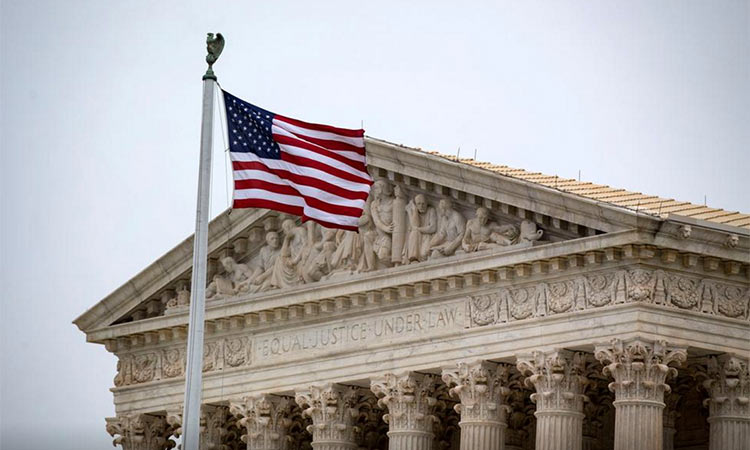Senegal’s only female presidential candidate inspires hope for many
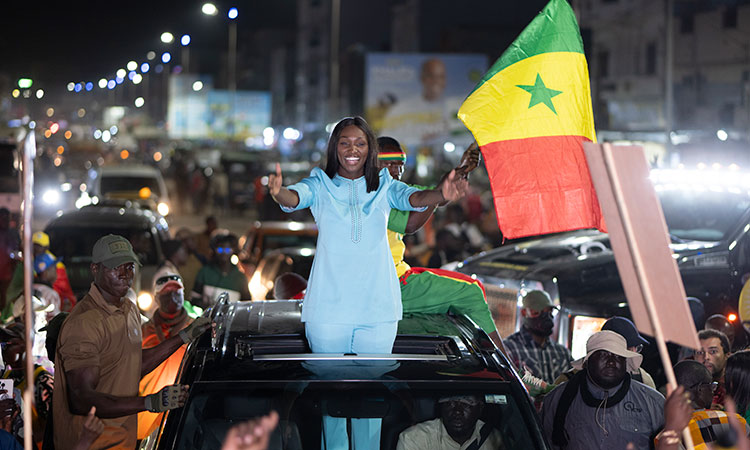
Presidential candidate Anta Babacar Ngom greets supporters during her electoral campaign caravan in Dakar, Senegal. AP
Senegal’s only female presidential candidate may have little to no chance of winning in Sunday’s election, but activists say her presence is helping to advance a decades long campaign to achieve gender equality in the West African nation.
Anta Babacar Ngom, a 40-year-old business executive, is a voice for both women and young people — groups hit hard by the country’s economic troubles, widespread unemployment and rising prices. She has promised to create millions of jobs and a bank for women to support their economic independence.
“Our country has enormous potential. The natural resources are there, and they can be developed,” she said. “The young girls I meet ask for my support. They do so because they know that when a woman comes to power, she will put an end to their suffering. I’m not going to forget them.”
Few expect Ngom to be among the leading candidates for the presidency, but activists say the fact that a woman has made it to the presidential race for the first time in years reflects how women are moving ahead in the struggle for equality.
“We have to be there, even if we don’t stand a chance,” said Selly Ba, an activist and sociologist. “We don’t stand a chance in these elections. But it’s important that we have women candidates, women who are in the race.”
Ngom is the first female candidate to run for president in over a decade, reflecting how progress has been frustratingly slow for activists, who say there has been a shift among young people toward more traditional views of women’s roles in society.
Popular social media accounts, often by Senegalese posting from abroad where there is more freedom to speak out, debate taboo topics like sex before marriage and whether polygamy is fair. One TikTok user, who goes by the name Ngo Keĩta, plays the role of a popular agony aunt, posting clips in Wolof, the language spoken most widely in Senegal. One clip with over 2 million views describes a bitter feud between a woman and her husband in a polygamous marriage, and invites followers to comment.
Ngo Keĩta did not respond to a written request for comment.
Some young women in Senegal are returning to the traditional notion of marriage, said Marième Wone Ly, the first woman to lead a political party in Senegal over two decades ago.
“We have to be very careful. There is a certain regression,” she said, referring to how erroneous interpretations of Islam can act against the forces of progress toward equality. “We’ve gone backwards a bit despite parity.”
Through the 1990s, Senegalese women mobilised through grassroots organizations. The country appointed its first female prime minister in 2001, and in 2010 a law that required all political parties to introduce gender parity in electoral lists helped to drive up female participation in politics. “Women’s rights have evolved at the political level over the last 10 years and particularly since the gender parity law came into force,” said Bousso Sambe, a former parliamentarian, adding that women have yet to systemically take advantage of the law.
In 2012, two women ran for president, and while they earned less than 1% of the vote each, analysts say their participation was important. Women in Senegal now make up more than 40% of parliament, one of the highest levels of representation in Africa.
“It’s crucial to strike a balance between modern evolution and respect for our customs. Women must be able to express themselves without hindrance, while preserving our cultural identity and valuing the traditional values that have shaped our society,” Ngom told the AP.
Ngom, who runs her family’s food company, has made the economy a focus of her campaign, which most analysts agree is a key concern for the population. Economic hardship has driven thousands of Senegalese to attempt dangerous journeys in search of a better life in the West. Ngom’s supporters say they are proud to back a female candidate and hopeful for a change with the next government.
“Our children are dying at sea because of unemployment and job insecurity. Unemployment is endemic. Women are tired,” activist Aicha Ba said at a recent rally.
Seven million Senegalese are due to head to the polls on Sunday to vote in a wide open presidential election following weeks of chaos and uncertainty. Whoever comes out on top will be tasked with steering the traditionally stable West African nation out of years of turmoil, and managing revenues from recently discovered oil and gas reserves. The 18 men and one woman have until Friday to finish a raucous two-week campaigning period, which was dramatically shortened after a last-minute change to the election date. The election race was also fired up by a rapidly-passed amnesty law that led last week to the release from prison of Bassirou Diomaye Faye and the charismatic Ousmane Sonko, figureheads of the anti-establishment opposition. Although Faye is Sonko’s deputy, the former is on the ballot because the latter has been barred from standing.
In voters’ eyes, they come as a package deal.
They plan “to share resources fairly. What belongs to SENEGAL should be left to SENEGAL, that’s patriotism,” said 38-year-old teacher Gnima Mane in the southern city of Ziguinchor.
For the first time in Senegal, the incumbent will not feature on the ballot, with the candidate selected by outgoing President Macky Sall’s governing coalition up against 18 rivals.
In the central town of Diourbel, many people have faith in Sall’s candidate, Amadou Ba.
“We have new streetlights, roads and a grass stadium,” said high school student Ousseynou Diene during a rally for Ba.
Senegal has traditionally been considered a beacon of democracy and stability in coup-hit West Africa.
But Sall’s last-minute decision in February to delay the presidential vote due later that month sparked unrest that left four people dead.
Sall, who had won praise abroad by renouncing a possible third term bid in 2023, said he called off the vote over fears the ballot would not go well.
After weeks of political crisis, the country’s top constitutional body stepped in and forced him to reset the date to March 24.
Ba and Faye, who has pitched himself as the “candidate for system change” and “left-wing pan-Africanism”, both claim they will be able to win in the first round.
Khalifa Sall, the former mayor of the capital Dakar, has also been mentioned as an outsider.
But the election remains wide open.
The race is “the most open” of the 12 presidential votes held under universal suffrage since SENEGAL gained independence from France in 1960, said Sidy Diop, deputy editor of Le Soleil daily.
